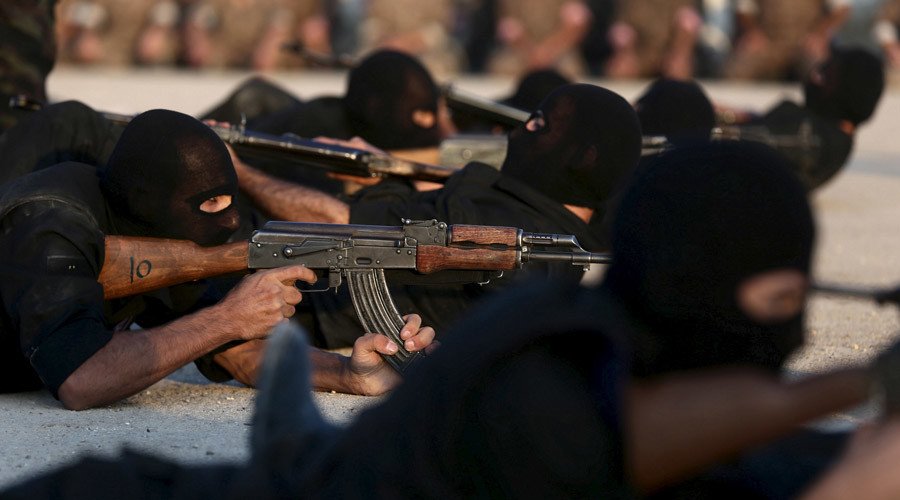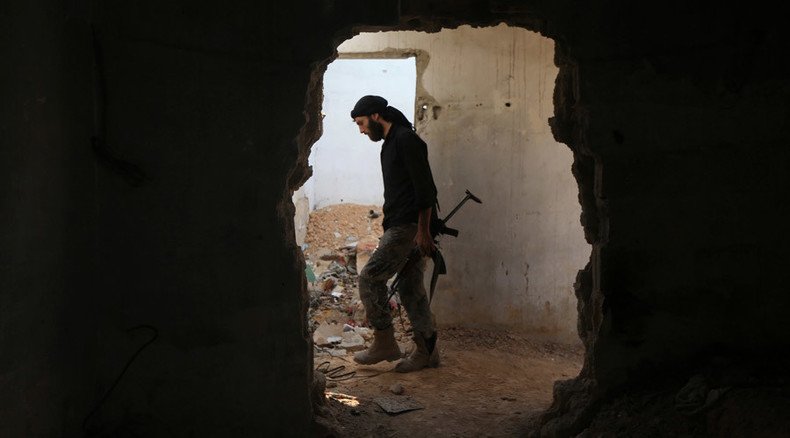The majority of the fighting power of the Syrian ‘moderates’ is in the hands of so-called jihadists and extremists, says Charles Shoebridge, former UK counter-terrorism officer. They are generally Islamists who don’t support democracy, he added.
Around 70 of a brand-new batch of US-trained rebels in Syria have reportedly defected to the Al-Qaeda affiliate the al-Nusra Front.
RT: How predictable was this defection?
Charles Shoebridge: Yes, it is absolutely predictable and was widely predicted. It’s part of a consistent pattern that goes back some years. Let’s remember the context of this, of course, as your report indicated, was that Obama, as a part of this allegedly anti-ISIS strategy, recognizing that air power is not enough to defeat this group, [forwarded] the creation of a division – a land army, if you like - of so-called moderate rebels trained and armed and equipped by the US throughout. This has been beset by failure. People have defected in the past. And also there have been widespread defections amongst the rebels that the US has been more covertly training in cooperation with countries such as Qatar, Saudi Arabia and perhaps even Turkey over the last four years.
Many other rebels have been sent into Syria under covert CIA programs, armed under covert, and, more recently, overt programs, and almost invariably they have gone over to rebel groups which cannot by any means be called ‘moderate’. These rebel groups are either affiliated with ISIS, or they are affiliated with al-Nusra, the local franchise of Al-Qaeda fighting in Syria, or with other jihadist groups, almost all of whom have a very anti-American, anti-Western, and certainly anti-democracy and human rights agenda. Yet, America, with its Western and Middle East allies like Saudi Arabia and Qatar, has been backing [these radical groups] on the ground aiming to topple [Syrian President Bashar] Assad.

RT: But what is going wrong, why are they going towards these extreme groups? Why are they defecting?
CB: The problem is in our perception of the rebellion against Assad from the very outset. There is no question Assad was and is a dictator. Of course that is in the context of the majority of rulers in that region, especially amongst our allies, such as Qatar, Saudi Arabia, also being dictators, to keep that in context. In the effort to topple Assad the Western governments and media, particularly those in the US, France and Britain, have portrayed the rebellion from the outset as something that is seeking democracy, human rights, women’s rights, freedom and is beset or rather steeped in moderation. There has been very little evidence of this from the start.
Sure there are moderates and sure amongst the Syrian opposition [there] are people who support democracy, but really almost from the outset, if not from the outset… the majority of the fighting power of the Syrian rebels has lain in the hands of what we would call jihadists, what we would call extremists. For that reason any use of the term ‘moderate’, which is used frequently to label the rebels that the US and the UK and others are supporting is very much a relative concept.
These moderate rebels are generally Islamist, they don’t necessarily support democracy, and they aren’t necessarily pro-Western. That has become more and more difficult to hide as these programs are producing new so-called ‘moderate’ rebels, and they are just being true to form and they are going over to the more Islamist side that actually they would have been allied to in the first place. It is also worth remembering that although this division - or Brigade 30, as Obama’s designed land army is being called - and now I notice it is even called ‘Division 30’ by the media reports - never really comprised more than 50- 70 individuals. In fact, these terms like “division” or “brigade” are very much misleading. We are talking about no more ever - despite the $500 million or so spent on this by the US, on this program of training and equipping - more than about 50 people, more than a platoon, in fact.
LISTEN MORE:
The statements, views and opinions expressed in this column are solely those of the author and do not necessarily represent those of RT.

